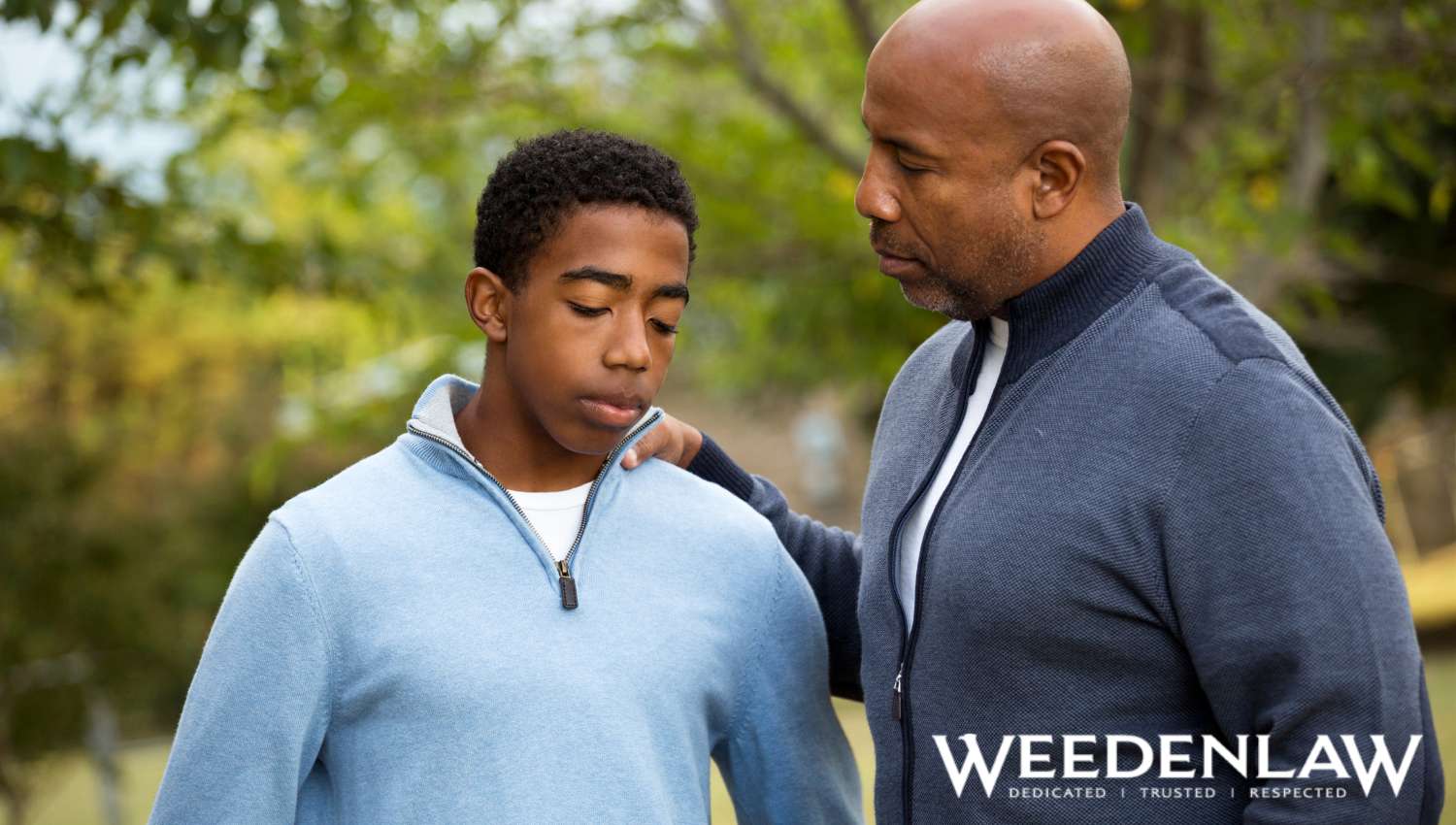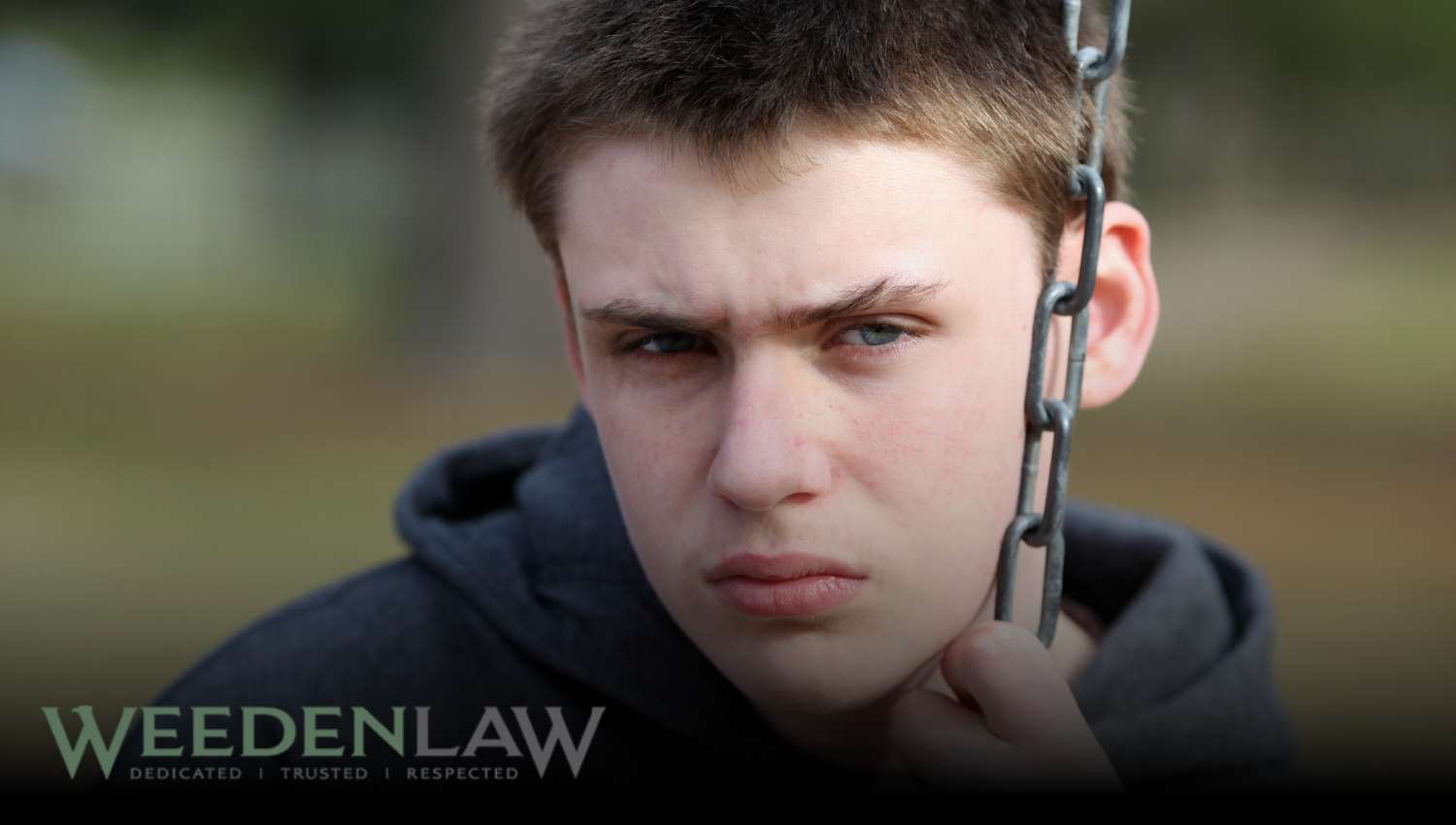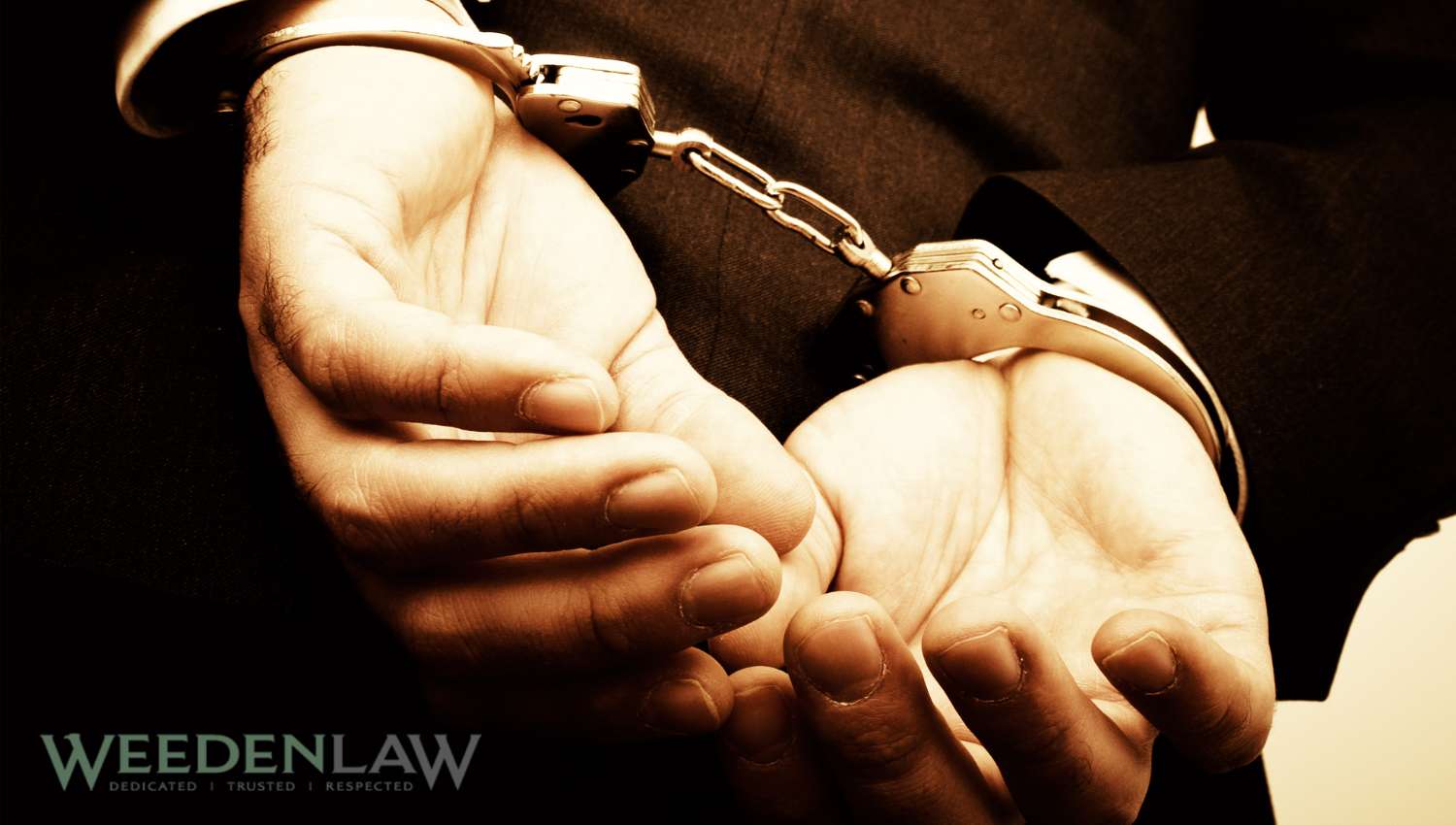Facing a charge for contributing to the delinquency of a minor? Colorado law takes these charges very seriously, as they involve influencing or enabling a minor to engage in illegal or harmful activities. Whether the alleged offense involves providing alcohol or drugs, encouraging criminal behavior, or failing to prevent a minor from committing a crime, a conviction can result in significant penalties, including fines, jail time, and a permanent mark on your record.
At WeedenLaw, we understand how overwhelming and stressful these charges can be. Our legal team is dedicated to protecting your rights and building a strong, strategic defense to fight the allegations against you.
If you or a loved one is facing accusations of contributing to the delinquency of a minor in Colorado, don’t navigate this situation alone. Contact WeedenLaw today at (720) 307-4330 for a free and completely confidential consultation.
What Does Contributing to the Delinquency of a Minor Mean?
Under state or federal law, contributing to the delinquency of a minor is understood as any act that leads a minor toward behaviors that are deemed harmful or unlawful. This offense can stem from violations not only defined by a county or ordinance but also from broader legal statutes, making it essential to examine such facts carefully when determining culpability.
The law scrutinizes whether the actions of an individual might classify them as a person who knowingly influences a minor into misconduct. Ultimately, these provisions work together to ensure that any form of contributing to the delinquency of a minor is addressed rigorously under the law.
C.R.S. 18-6-701
C.R.S. 18-6-701 defines the offense of contributing to the delinquency of a minor in Colorado. Under this statute, “any person who induces, aids, or encourages a child to violate any federal or state law, municipal or county ordinance, or court order commits contributing to the delinquency of a minor.” A child means any person under the age of 18.
In other words, any individual who encourages a child or young adult under the age of 18 to participate in delinquent activities can be held accountable for this offense.
What is Considered a Delinquent Act?
In Colorado, a delinquent act refers to any action committed by a minor that would be considered a crime under federal or state law if committed by an adult. This can include theft crimes, drug possession, underage drinking, arson, burglary, robbery or more serious crimes like assault and battery leading to serious bodily injury.
Additionally, violations of curfew and truancy laws in Colorado, as well as other status offenses—acts that are only illegal due to the individual’s age—may also be considered delinquent behavior under certain circumstances and require the help of a Denver juvenile defense lawyer like Jeff Weeden.
However, when an adult is accused of encouraging or enabling a minor to engage in these activities, they may face their own charges for contributing to the delinquency of a minor under state law.
Contributing to the Delinquency of a Minor Examples
Here are a few of the more common examples we see when it comes to contributing to the delinquency of a minor in Colorado:
- Providing Alcohol to a Minor – If an adult gives or allows a person under the age of eighteen years to consume alcohol, they could face charges. Even if a parent or guardian is present, it is illegal in most cases for a minor to legally possess alcohol outside of certain exceptions, such as religious or medicinal purposes.
- Encouraging Drug Use – An adult who encourages a child to use or possess illegal substances, including marijuana, could be charged with contributing to the delinquency of a minor. While recreational marijuana is legal for adults in Colorado, it remains illegal for minors to possess or use it.
- Allowing a Minor to Violate Alcohol Possession Laws – If an adult provides a place for minors to drink, such as hosting a party where minors violate alcohol possession laws, they can be charged. Even if they do not directly provide the alcohol, knowingly allowing underage drinking on their property is illegal.
- Encouraging Criminal Behavior – An adult who persuades or pressures a minor to engage in criminal activities such as theft, vandalism, or trespassing in Colorado can be charged with contributing to the delinquency of a minor. This applies even if the adult does not directly participate in the crime.
- Providing False Identification – If an adult supplies a fake ID to a person under the age of eighteen years so they can buy alcohol, enter a bar, or purchase restricted substances like marijuana, they may be charged with contributing to the delinquency of a minor.
Is Contributing to the Delinquency of a Minor a Felony or Misdemeanor in Colorado?
In Colorado, contributing to the delinquency of a minor can be classified as either a felony or a misdemeanor, depending on the nature of the offense and whether it is considered first or second-degree contributing.
A person may be found guilty of first-degree contributing to the delinquency of a minor if they induce, aid, or encourage a child to commit a crime that is classified as a felony victims’ rights act crime under CRS 24-4.1-302(1). This offense is considered a Class 4 felony.
Second-degree contributing to the delinquency of a minor occurs when a person induces, aids, or encourages a child to violate any municipal or county ordinance, court order, or state or federal law that is not classified as a felony victims’ rights act crime. This offense is a Class 1 misdemeanor in Colorado.
What is the Punishment for Contributing to the Delinquency of a Minor in Colorado?
As mentioned above, first-degree contributing to the delinquency of a minor is a Class 4 felony. If convicted, this can result in anywhere from two to six years in prison, along with fines ranging from $2,000 to $500,000.
Second-degree contributing to the delinquency of a minor in Colorado is a Class 1 misdemeanor, which carries a penalty of up to 364 days in jail, fines up to $1,000, and/or a probation sentence determined by the court.
Since the penalties vary based on the degree of the offense, it is crucial for anyone facing these charges to understand the legal implications. A felony conviction can have long-term consequences, affecting employment opportunities, housing, and other rights. Not only that, but if a current or former employee of a school district in Colorado is convicted, pleads nolo contendere (aka no contest), or gets a deferred sentence for this offense, the court must also notify the Colorado Department of Education about it, which may carry further penalties.

Can Parents Be Charged With Contributing to the Delinquency of Their Own Child?
Yes, parents can be charged with contributing to the delinquency of their own child if they encourage, aid, or allow their child to violate any law. The severity of the charge depends on whether the violation involves a felony-level offense or a lesser crime, which may result in either a felony or misdemeanor charge under state law.
How an Experienced Criminal Defense Attorney Can Help Defend Against These Charges
An experienced criminal defense attorney can provide valuable legal strategies to fight charges of contributing to the delinquency of a minor. In these types of cases, the defendant’s knowledge and intent are critical factors. One possible defense is an affirmative defense, which means the defendant’s knowledge and intent are critical factors in the case. For example, if the accused had a reasonable belief that the minor was over the age of 18, this could serve as an affirmative defense.
Additionally, skilled criminal defense attorneys can challenge the prosecution’s evidence, negotiate a favorable plea agreement, or even get the case dismissed if there is insufficient proof of wrongdoing. By thoroughly examining the circumstances, witness statements, and available evidence, a knowledgeable criminal attorney can build a compelling defense to protect the accused from serious legal consequences.
Why Choose Jeff Weeden as Your Denver Defense Attorney?
When it comes to charges involving contributing to the delinquency of a minor, Colorado criminal defense attorney Jeff Weeden understands how state law applies to your situation and will work diligently to challenge the prosecution’s evidence. As your trusted Denver defense attorney, he can make a huge difference in your criminal case by building a strong defense, highlighting weaknesses in the case, and creating reasonable doubt in court, which may lead to reduced charges or even a case dismissal. With his experience and dedication working for you, Attorney Jeff Weeden fights aggressively to protect your rights and future.

Contact WeedenLaw for Skilled Defense Against Contributing to the Delinquency of a Minor Charges in Colorado
If you are facing charges for contributing to the delinquency of a minor in Colorado, it is critical to protect your rights from the very start. Remember, you have the right to remain silent and avoid making any statements that could be used against you. Instead, contact Jeff Weeden at WeedenLaw as soon as possible to discuss your case with an experienced Denver criminal defense attorney.
Call (720) 307-4330 or complete our online intake form today for a confidential consultation and let us help you fight for the best possible outcome.
















